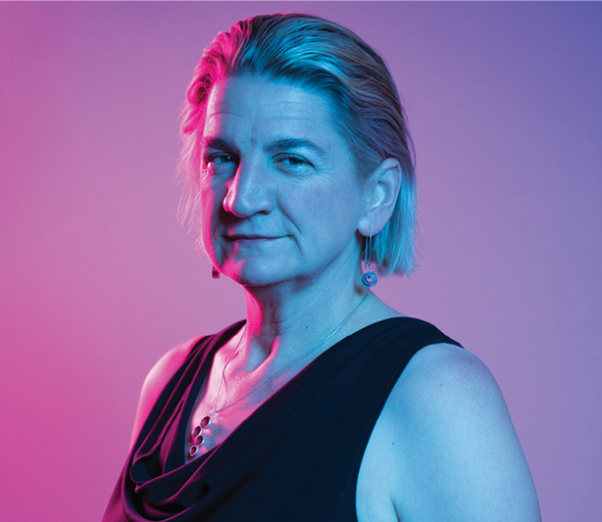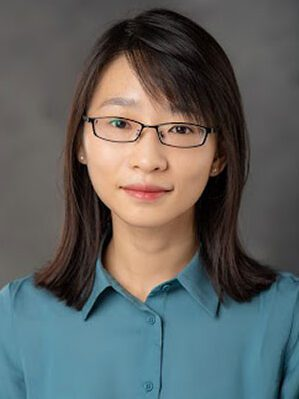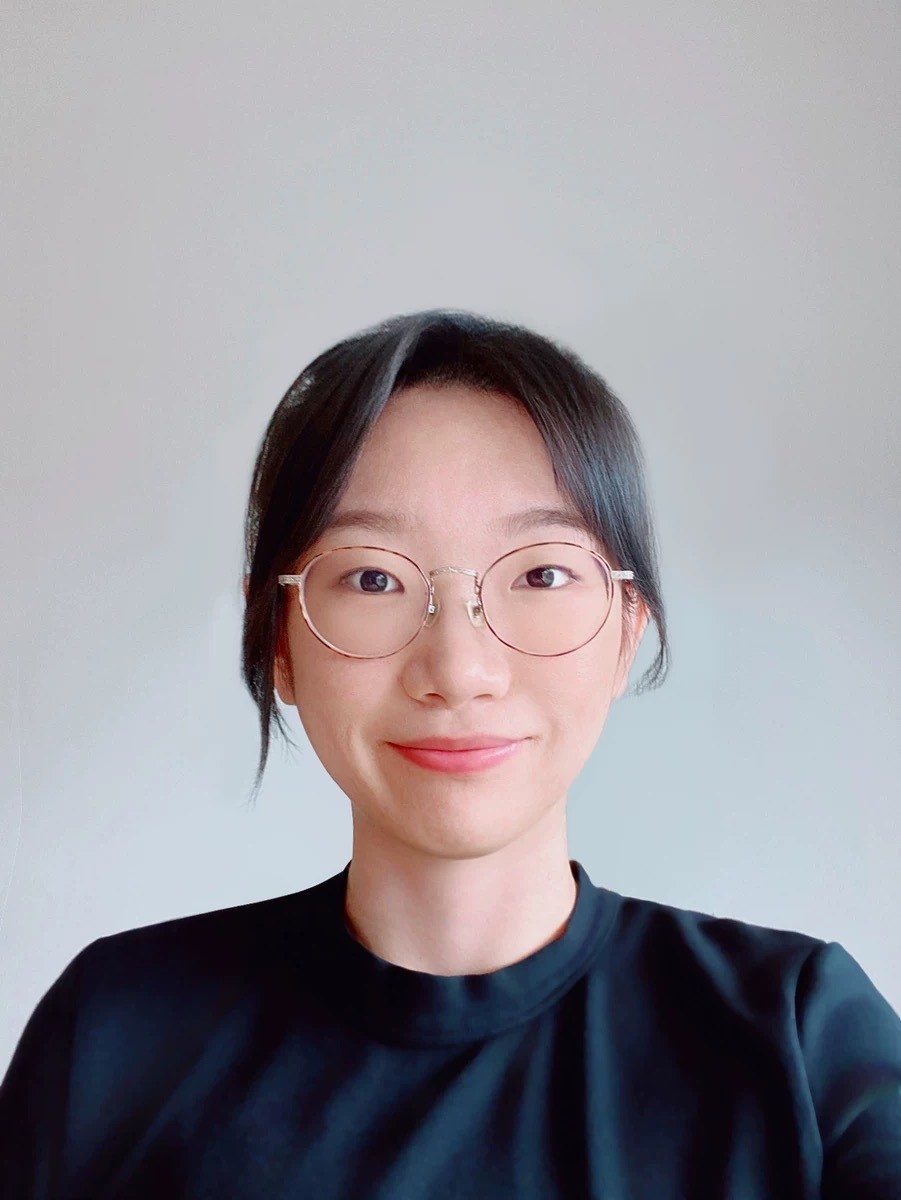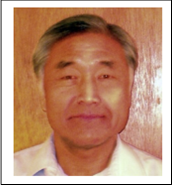Invited Sessions:
+ Invited Session 1: Beyond Data: AI-Driven Insights for the Next Era of Drug Development (May 16, 2025, 10:15 AM - 12:00 PM)
+ Invited Session 2 (Panel): Biomarker-Fueled Precision: Transforming Translational Cancer Research(May 16, 2025, 1:30 PM - 3:15 PM)
+ Invited Session 3 (Panel): Bridging Evidence and Meaning: Statistical Approaches to Clinical Significance (May 16, 2025, 3:45 PM - 5:30 PM)
+ Invited Session 4: The Art of Dose Optimization Throughout the Drug Lifecycle (May 17, 2025, 10:00 AM - 11:45 AM)
+ Invited Session 5: Emerging Frontiers of Cancer Research (May 17, 2025, 1:15 PM - 3:00 PM)
+ Invited Session 6 (Panel): From Setbacks to Solutions: Experiences Gained in Complex Oncology Trials(May 17, 2025, 3:30 PM - 5:00 PM)
Invited Session 1: Beyond Data: AI-Driven Insights for the Next Era of Drug Development
10:15 AM - 12:00 PM, May 16, 2025; Chem-H Rotunda E241
Chair: Dacheng Liu
Speakers: Bin Chen,James Zou, Herb Pang, Jimeng Sun
AI applications for evidence generation and drug development in industry
Speaker: Herb Pang, Ph.D., Roche/Genentech
 Dr Herb Pang is an expert statistical scientist (technical Senior Director lvl equivalent) at Genentech/Roche. He is an adjunct faculty in the Department of Biostatistics and Bioinformatics at Duke University School of Medicine and honorary associate professor of the University of Hong Kong. He was promoted to an associate professor with tenure in 2019 at the University of Hong Kong. He obtained his PhD in Biostatistics from Yale University in 2008 and BA in Mathematics and Computer Science from the University of Oxford in 2002.
Dr Herb Pang is an expert statistical scientist (technical Senior Director lvl equivalent) at Genentech/Roche. He is an adjunct faculty in the Department of Biostatistics and Bioinformatics at Duke University School of Medicine and honorary associate professor of the University of Hong Kong. He was promoted to an associate professor with tenure in 2019 at the University of Hong Kong. He obtained his PhD in Biostatistics from Yale University in 2008 and BA in Mathematics and Computer Science from the University of Oxford in 2002.
His primary research interests include antimicrobial resistance, big data, cancer genomics, classification, comparative effectiveness outcomes research, data science, design and analysis of clinical trials, machine learning, meta-analysis, metagenomics, multi-omics data integration, predictive models, real-world evidence for drug development, and translational medicine. He is a principal investigator on an HHS U01 FDA grant, entitled "Applying novel statistical approaches to develop a decision framework for hybrid randomized controlled trial designs which combine internal control arms with patients' data from real-world data source". He was a principal investigator on an NIH R21 grant, entitled ‘Translational Meta-analysis for Elderly Lung Cancer Patients’, from the National Institute on Aging. He was a principal investigator on an RGC grant entitled 'A Familial Meta -Omics Study of the Cutaneous Microbiome in Psoriasis', and HMRF grants entitled 'Modelling chemotherapy-induced neutropenia and other hematologic toxicities in elderly patients’ and ‘Translational meta-analysis of immunotherapy studies in lung and liver cancer’.
Dr Pang has published over 150 methodological and translational peer-reviewed research articles on statistics, genetics, genomics, bioinformatics, and clinical trials. His work has been published in top journals including, Bioinformatics, JAMA, Journal of Clinical Oncology, Journal of Thoracic Oncology, Lancet Oncology, Gastroenterology, Gut, Hepatology, and the Journal of the National Cancer Institute. He received the US Chinese Anti-Cancer Association (USCACA)-Asian Fund for Cancer Research (AFCR) 2015 Scholar Award. From January 2012 to December 2014, he served on the editorial board of the Journal of Clinical Oncology. He has also contributed as a reviewer for over 50 leading journals, such as Annals of Applied Statistics, Briefings in Bioinformatics, Bioinformatics, Biostatistics, JAMA Oncology, Nature Communications, Nucleic Acids Research, Science Translational Medicine, Statistics in Medicine, and Trends in Genetics. He is a member of the American Statistical Association and a fellow of the Royal Statistical Society.
Abstract
In this talk, we will cover the potential of AI in evidence generation and drug development in the pharmaceutical industry. Emphasizing the importance of collaboration with academia, it highlights examples of AI applications developed in partnership with universities. The focus will be on real-world applications, demonstrating how machine learning can make clinical trials and drug development more efficient. Additionally, the talk highlights some practical use of large language models in accelerating drug development. The landscape of regulatory guidance and recent work by regulatory statisticians concerning AI in drug development will also be briefly discussed. This session aims to provide an overview of efforts and AI innovations that are shaping the future of drug development, and ultimately improving patient outcomes.
Title: AI models for transcriptomics-based target identification and de-novo drug design
Speaker: Dr. Bin Chen, Michigan State University
 Dr. Bin Chen is a tenured associate professor leading a multidisciplinary lab at Michigan State University, with a mission to leverage advanced machine learning and emerging big data to discover new therapeutics. He is also the Founding Director of the Center for AI-Enabled Drug Discovery in the College of Human Medicine at Michigan State University. He was a faculty member at UCSF and pursued the postdoc training at Stanford. His current research areas include machine learning method development, integrative bioinformatics, and EHR mining. He has training in informatics, chemistry, and biology, and working experience in big pharmaceutical companies and small startups. His lab strives to pioneer transcriptomics-based drug discovery, develop foundation models to understand how individual cells respond to perturbations, and utilize massive real-world data to assess drug efficacy.
Dr. Bin Chen is a tenured associate professor leading a multidisciplinary lab at Michigan State University, with a mission to leverage advanced machine learning and emerging big data to discover new therapeutics. He is also the Founding Director of the Center for AI-Enabled Drug Discovery in the College of Human Medicine at Michigan State University. He was a faculty member at UCSF and pursued the postdoc training at Stanford. His current research areas include machine learning method development, integrative bioinformatics, and EHR mining. He has training in informatics, chemistry, and biology, and working experience in big pharmaceutical companies and small startups. His lab strives to pioneer transcriptomics-based drug discovery, develop foundation models to understand how individual cells respond to perturbations, and utilize massive real-world data to assess drug efficacy.
Abstract
Transcriptomics is one of the most widely used modalities for understanding disease mechanisms, yet its potential in drug discovery remains largely untapped. My lab has developed a suite of tools that leverage large-scale bulk, single-cell, and spatial transcriptomics for drug discovery. In this talk, I will present a deep learning-based drug discovery platform that uses transcriptomic features to screen large compound libraries and optimize lead compounds. To demonstrate its utility, I will share a case study in liver cancer, where we designed a novel compound that improved the IC₅₀ from 4 μM to 0.5 μM, with enhanced in vitro selectivity, favorable pharmacokinetics, and demonstrated in vivo activity. Additionally, I will introduce SPIDER, a zero-shot deep ensemble model for predicting surface protein abundance from single-cell transcriptomics. I will highlight its applications in biomarker and target identification in colon and liver cancers.
Title: Large language models for clinical trial design, execution, and analysis
Speaker: Dr. Jimeng Sun, University of Illinois Urbana-Champaign
Dr. Jimeng Sun is a Health Innovation Professor at the Siebel School of Computing and Data Science and Carle Illinois College of Medicine at the University of Illinois Urbana-Champaign. He is also the co-founder of Keiji AI, a pioneering company leveraging artificial intelligence to transform clinical trials through optimization and predictive modeling. His work at Keiji AI includes optimizing trial design, patient recruitment, and outcome prediction to accelerate drug development and improve success rates. Dr. Sun’s research centers on using AI to advance healthcare, with a special focus on improving clinical trials, clinical decision support, drug discovery, computational phenotyping, and clinical predictive modeling. He has been named one of the Top 100 AI Leaders in Drug Discovery and Advanced Healthcare and has an extensive academic impact, with over 400 publications, more than 36,000 citations, and an h-index of 97.Dr. Sun collaborates with top healthcare institutions, including Massachusetts General Hospital, Beth Israel Deaconess Northwestern, and Vanderbilt, as well as industry leaders such as IQVIA, Medidata and GE Healthcare. He received his B.S. and M.Phil. in computer science from the Hong Kong University of Science and Technology and his Ph.D. from Carnegie Mellon University.
Abstract
Large language models (LLMs) hold great promise for accelerating clinical trials, but fully realizing their potential in medicine requires targeted applications across key research tasks. This talk focuses on three essential steps in clinical trials: design, execution, and analysis. Specifically, with a highlight on literature research, clinical research, and data science research. I will first introduce LEADS and TrialMind, which build specialized LLMs for literature mining tasks and boost human-AI collaboration. Next, I will present TrialGPT, an LLM pipeline that streamlines patient recruitment in clinical trials. Finally, I will discuss how LLMs can accelerate hypothesis validation through code generation and analysis of medical and biomedical data.
Invited Session 2: Biomarker-Fueled Precision: Transforming Translational Cancer Research
1:30 PM - 3:15 PM, May 16, 2025; Chem-H Rotunda E241
Chair: Shannon McWeeney
Panel: Uno Hajime, Cystal MacKall, Alice Chen, Susan Halabi, Jennifer L. Casewell-Jin
Chair: Shannon McWeeney, Oregon Health and Science University (OHSU)
 Dr. Shannon McWeeney, Professor at Oregon Health and Science University (OHSU), is a methodologist working at the intersection of computer science, biostatistics and genetics to develop approaches to solve research bottlenecks and novel ways to visualize and interpret information. Her work on novel computational methods and frameworks for prioritization is one of her most significant contributions to science. While these methods were initially applied to precision medicine (cancer), they have wide applicability for target identification and therapeutic prioritization for many complex traits. In 2010, Dr. McWeeney was selected as a Kavli Frontiers Fellow by the US National Academy of Sciences for these contributions. Dr. McWeeney is the inaugural Chief Data Officer and Associate Director of Data Science for the OHSU Knight Cancer Institute and has a career-long commitment to data sharing and patient engagement. She served as a member of the Enhanced Data Sharing working group for the NCI Blue Ribbon Panel for White House Moonshot Initiative and as a member of the Biden Cancer Initiative Data Sharing and Patient Empowerment workstream. In 2020, she was named the Director of Medical Bioinformatics for the OHSU Knight Precision Oncology Program, in which she is responsible for the hardening and validation of assays, algorithms and models in the transition from research analytics to CLIA. She is a M-PI for OHSU’s NCI Acquired Resistance to Therapy Network (ARTNet), which arose from her collaborative work for over a decade as part of the OHSU BeatAML program. She is also an MPI for the NIH Bridge2AI AI-READi Salutogenesis Data Generation Project, collaboratively working to develop automated tools to accelerate the creation of FAIR (Findable, Accessible, Interoperable, and Reusable), CARE (Principles for Indigenous Data Governance) and ethically sourced data sets for machine learning and artificial intelligence.
Dr. Shannon McWeeney, Professor at Oregon Health and Science University (OHSU), is a methodologist working at the intersection of computer science, biostatistics and genetics to develop approaches to solve research bottlenecks and novel ways to visualize and interpret information. Her work on novel computational methods and frameworks for prioritization is one of her most significant contributions to science. While these methods were initially applied to precision medicine (cancer), they have wide applicability for target identification and therapeutic prioritization for many complex traits. In 2010, Dr. McWeeney was selected as a Kavli Frontiers Fellow by the US National Academy of Sciences for these contributions. Dr. McWeeney is the inaugural Chief Data Officer and Associate Director of Data Science for the OHSU Knight Cancer Institute and has a career-long commitment to data sharing and patient engagement. She served as a member of the Enhanced Data Sharing working group for the NCI Blue Ribbon Panel for White House Moonshot Initiative and as a member of the Biden Cancer Initiative Data Sharing and Patient Empowerment workstream. In 2020, she was named the Director of Medical Bioinformatics for the OHSU Knight Precision Oncology Program, in which she is responsible for the hardening and validation of assays, algorithms and models in the transition from research analytics to CLIA. She is a M-PI for OHSU’s NCI Acquired Resistance to Therapy Network (ARTNet), which arose from her collaborative work for over a decade as part of the OHSU BeatAML program. She is also an MPI for the NIH Bridge2AI AI-READi Salutogenesis Data Generation Project, collaboratively working to develop automated tools to accelerate the creation of FAIR (Findable, Accessible, Interoperable, and Reusable), CARE (Principles for Indigenous Data Governance) and ethically sourced data sets for machine learning and artificial intelligence.
Speaker: Dr. Jennifer Caswell-Jin, Stanford University
 Jennifer Caswell-Jin, MD is an Assistant Professor of Medicine (Oncology) at Stanford University, where her clinical practice centers on breast oncology, hereditary cancer, and breast cancer risk. Her translational research program integrates multi-omic analysis, modeling, real-world data, and clinical trials to advance precision oncology and improve outcomes for individuals with breast cancer. She is the principal investigator of the Department of Defense-funded TERPSICHORE trial, which evaluates the use of short-term biomarker-targeted novel agents in the pre-operative treatment of breast cancer.
Jennifer Caswell-Jin, MD is an Assistant Professor of Medicine (Oncology) at Stanford University, where her clinical practice centers on breast oncology, hereditary cancer, and breast cancer risk. Her translational research program integrates multi-omic analysis, modeling, real-world data, and clinical trials to advance precision oncology and improve outcomes for individuals with breast cancer. She is the principal investigator of the Department of Defense-funded TERPSICHORE trial, which evaluates the use of short-term biomarker-targeted novel agents in the pre-operative treatment of breast cancer.
Abstract
TBD
Speaker: Dr. Jingshen Wang, University of California, Berkeley
 Jingshen Wang, PhD, is an Assistant Professor of Biostatistics at the University of California, Berkeley. Her research team works on causal inference, experimental design, precision medicine, and, more recently, machine learning and artificial intelligence methods for healthcare. Her team also develops ML and AI approaches in collaboration with researchers to better understand the heterogeneity of Alzheimer’s disease and to design interventions for HIV prevention and care in Tanzania.
Jingshen Wang, PhD, is an Assistant Professor of Biostatistics at the University of California, Berkeley. Her research team works on causal inference, experimental design, precision medicine, and, more recently, machine learning and artificial intelligence methods for healthcare. Her team also develops ML and AI approaches in collaboration with researchers to better understand the heterogeneity of Alzheimer’s disease and to design interventions for HIV prevention and care in Tanzania.
Abstract
TBD
Invited Session 3: Bridging Evidence and Meaning: Statistical Approaches to Clinical Significance
1:30 PM - 3:15 PM, May 16, 2025; Chem-H Rotunda E241
Chair: Ming-Hui Chen, UConn
Panel: May Mo, Yuan Ji, Steven Goodman, Lee-Jen Wei, Kevin Bugin
Panelist: Steven Goodman, Stanford University
 Steven Goodman, MD, MHS, PhD, is Associate Dean for Clinical and Translational Research and Professor of Epidemiology, Medicine and Health Policy (by courtesy) at the Stanford University School of Medicine. He founded and directs the Stanford Program on Research Rigor and Reproducibility (SPORR), and is co-founder and co-director of the Meta-research Innovation Center at Stanford (METRICS). He teaches a variety of courses on statistical inference and biomedical research methods.
Steven Goodman, MD, MHS, PhD, is Associate Dean for Clinical and Translational Research and Professor of Epidemiology, Medicine and Health Policy (by courtesy) at the Stanford University School of Medicine. He founded and directs the Stanford Program on Research Rigor and Reproducibility (SPORR), and is co-founder and co-director of the Meta-research Innovation Center at Stanford (METRICS). He teaches a variety of courses on statistical inference and biomedical research methods.
His research interests are in scientific and statistical inference, research reproducibility and meta-research, and their implications for research ethics and policy. He was vice-chair, then chair of the PCORI Methodology Committee from 2013-2024, has been senior statistical editor at the Annals of Internal Medicine for over three decades, was the editor of Clinical Trials: Journal of the Society for Clinical Trials, from 2003-2013, is on the PNAS statistical review team, and is scientific advisor to the national Blue Cross-Blue Shield technology assessment program. Before coming to Stanford in 2011, Steve was a member and then director of the Johns Hopkins Kimmel Cancer Center’s Division of Biostatistics and Bioinformatics, from 1990-2010.
Dr. Goodman drafted the ASA’s 2016 P-value statement and gave a keynote address entitled “Why is getting rid of P-values so hard? Musings on science and statistics” at their 2017 colloquium on statistical inference themed “Beyond P<0.05”. He was awarded the 2016 Spinoza Chair in Medicine from the University of Amsterdam for his work in inference, the 2019 Lilienfeld award from the American College of Epidemiology for his lifetime contributions to the field and is an elected member of the National Academy of Medicine.
Panelist: Yuan Ji, University of Chicago
Dr. Yuan Ji is Professor of Biostatistics at The University of Chicago. His research focuses on innovative Bayesian statistical methods for translational cancer research. Dr. Ji is author of over 170 publications in peer-reviewed journals including across medical and statistical journals. He is the inventor of many innovative Bayesian adaptive designs such as the mTPI and i3+3 designs, which have been widely applied in dose-finding clinical trials worldwide. His work on cancer genomics has been reported by a large number of media outlets in 2015. He received Mitchell Prize in 2015 by the International Society for Bayesian Analysis. He is an elected fellow of the American Statistical Association.
Panelist: May Mo, Amgen
 May Mo is an Executive Director of Biostatistics at Amgen. She is the Head of Design and Innovation (D&I) group in the Center for Design and Analysis, and the Chair of Innovative Clinical Trial Design Council within Amgen Global Development. In her roles, May has been a strong advocate and enabler of innovative approaches in clinical development planning and clinical trial design. As the results of her team’s effort and in collaboration with many cross-functional colleagues, a great majority of new clinical trials within Amgen have taken innovative approaches (adaptive designs, Bayesian methods, master protocols, external control, etc.) into consideration, and leveraged modeling and simulation to guide the design option evaluation and optimization. May has over 20 years of drug and device development experience in Amgen and Abbott laboratory. She completed a master’s degree, post-master research and PhD courses in Statistics at the University of Chicago and a Master’s in Business Administration from California Lutheran University.
May Mo is an Executive Director of Biostatistics at Amgen. She is the Head of Design and Innovation (D&I) group in the Center for Design and Analysis, and the Chair of Innovative Clinical Trial Design Council within Amgen Global Development. In her roles, May has been a strong advocate and enabler of innovative approaches in clinical development planning and clinical trial design. As the results of her team’s effort and in collaboration with many cross-functional colleagues, a great majority of new clinical trials within Amgen have taken innovative approaches (adaptive designs, Bayesian methods, master protocols, external control, etc.) into consideration, and leveraged modeling and simulation to guide the design option evaluation and optimization. May has over 20 years of drug and device development experience in Amgen and Abbott laboratory. She completed a master’s degree, post-master research and PhD courses in Statistics at the University of Chicago and a Master’s in Business Administration from California Lutheran University.
Invited Session 4: The Art of Dose Optimization Throughout the Drug Lifecycle
10:00 AM - 11:45 AM, May 17, 2025; Chem-H Rotunda E241
Chair: Byung Park
Speakers: Haitao Pan, Shivaani Kummar, Leena Ghandi, Yue Yang;
Discussant: Naitee Ting
The Reversed Multi-Arm Two-Stage (RevMATS) Design in Oncology Dose Optimization
Speaker: Yue Yang, PhD, Sanofi
 Yue Yang is an associated statistical project leader at Sanofi. She obtained her Ph.D. in statistics from North Carolina State University and currently works in the oncology statistics team at Sanofi. She has led several early oncology projects for both solid tumors and hematologic malignancies. Her current research focuses on clinical trial design and decision-making in oncology, including but not limited to basket trial design, seamless phase 2/3 design, study design with an external control arm, and dose optimization design.
Yue Yang is an associated statistical project leader at Sanofi. She obtained her Ph.D. in statistics from North Carolina State University and currently works in the oncology statistics team at Sanofi. She has led several early oncology projects for both solid tumors and hematologic malignancies. Her current research focuses on clinical trial design and decision-making in oncology, including but not limited to basket trial design, seamless phase 2/3 design, study design with an external control arm, and dose optimization design.
Abstract
In response to the FDA’s Project Optimus, which redefined the dose optimization paradigm in oncology drug development, various novel trial designs have emerged. Jiang et al. (2023) proposed the Multi-Arm Two-Stage (MATS) design, integrating proof-of-concept (PoC) evaluation and dose optimization across multiple indications under a Bayesian hierarchical model (BHM) framework. For all considered indications/cohorts, the MATS design enrolls participants at the most promising dose initially, followed by dose randomization only in selected cohorts. We propose the Reversed MATS (RevMATS) design, which reverses these two stages—randomizing participants to multiple doses across indications/cohorts first before selecting the optimal dose for continued enrollment (or stopping due to early futility). This approach is suited for cases where multiple doses show similar early activities or when evidence is insufficient to favor one dose over the other a priori. The RevMATS design further improves the BHM by incorporating broader dose-response profiles (as seen in recent novel therapies of different modalities) and explicitly leveraging early-phase dose-escalation data to enhance decision-making.
DTE-BOP2: A Bayesian Optimal Phase II Clinical Trial Design Accounting for Delayed Treatment Effects in Immunotherapy
Speaker: Haitao Pang, Associate Professor of Biostatistics, St. Jude Children’s Research Hospital
 Dr. Haitao Pan is an Associate Professor of Biostatistics at St. Jude Children’s Research Hospital. His research focuses on innovative clinical trial designs, particularly in oncology, across all phases of development. He has authored over 60 peer-reviewed publications and a book published by Springer Nature, and has developed 18 R software packages to support adaptive trial design and sample size calculation—many of which are used in clinical trial protocols at St. Jude. Dr. Pan is the statistician for the New Approaches to Neuroblastoma Therapy (NANT) consortium and a member of the PCDC INRG Committee. He also holds adjunct faculty appointments at Florida State University and The University of Memphis. Dr. Pan earned Ph.D. degrees in Preventive Medicine (China) and Biostatistics (MD Anderson Cancer Center).
Dr. Haitao Pan is an Associate Professor of Biostatistics at St. Jude Children’s Research Hospital. His research focuses on innovative clinical trial designs, particularly in oncology, across all phases of development. He has authored over 60 peer-reviewed publications and a book published by Springer Nature, and has developed 18 R software packages to support adaptive trial design and sample size calculation—many of which are used in clinical trial protocols at St. Jude. Dr. Pan is the statistician for the New Approaches to Neuroblastoma Therapy (NANT) consortium and a member of the PCDC INRG Committee. He also holds adjunct faculty appointments at Florida State University and The University of Memphis. Dr. Pan earned Ph.D. degrees in Preventive Medicine (China) and Biostatistics (MD Anderson Cancer Center).
Abstract
DTE-BOP2 is a novel Bayesian optimal phase II clinical trial design tailored for immunotherapy trials that exhibit delayed treatment effects. Unlike conventional designs that often ignore such delays and risk reduced statistical power, DTE-BOP2 explicitly models the uncertainty in delay duration using a truncated gamma prior, informed either by expert elicitation or default specifications. Integrated into a Bayesian decision-making framework, this approach adaptively adjusts trial decision rules while rigorously controlling type I and type II error rates. Built upon the established BOP2 framework, DTE-BOP2 achieves substantial sample size reductions and notable power gains in the presence of treatment delays, as demonstrated by extensive simulation studies. To support implementation, we provide an open-source R package, DTEBOP2, enabling researchers and clinicians to design and evaluate immunotherapy phase II trials with improved efficiency and statistical rigor.
Defining ‘optimal’ dose in early phase trials
Speaker: Dr. Shivaani Kummar, Oregon Health & Science University
 Dr. Shivaani Kummar is Margaret and Lester DeArmond Chair of Molecular Oncology, interim Chief Executive of the Knight Cancer Institute, Division Chief of Hematology and Medical Oncology, co-Director of the Center of Experimental Therapeutics, Oregon Health & Science University, Portland, Oregon, USA. She specializes in conducting pharmacokinetic and pharmacodynamic driven first-in-human trials tailored to make early, informed decisions regarding the suitability of novel molecular agents for further clinical investigation. She is a member of scientific planning committees of national and international professional organizations and has authored over 180 peer reviewed publications, 10 book chapters, and co-edited a book on ‘Novel Designs of Early Phase Trials for Cancer Therapies’. She is currently a member of the American Association for Cancer Research Exploratory IND/Phase 0 Clinical Trials Task Force, and served as co-Chair of the Clinical Trials Committee, AACR Annual Meeting 2023-2024.
Dr. Shivaani Kummar is Margaret and Lester DeArmond Chair of Molecular Oncology, interim Chief Executive of the Knight Cancer Institute, Division Chief of Hematology and Medical Oncology, co-Director of the Center of Experimental Therapeutics, Oregon Health & Science University, Portland, Oregon, USA. She specializes in conducting pharmacokinetic and pharmacodynamic driven first-in-human trials tailored to make early, informed decisions regarding the suitability of novel molecular agents for further clinical investigation. She is a member of scientific planning committees of national and international professional organizations and has authored over 180 peer reviewed publications, 10 book chapters, and co-edited a book on ‘Novel Designs of Early Phase Trials for Cancer Therapies’. She is currently a member of the American Association for Cancer Research Exploratory IND/Phase 0 Clinical Trials Task Force, and served as co-Chair of the Clinical Trials Committee, AACR Annual Meeting 2023-2024.
Abstract
Objectives of Phase I trials have traditionally been to determine the safety and tolerability of a novel agent and to determine the recommended phase 2 dose (RP2D). However, clinical, pharmacokinetic and pharmacodynamics considerations in defined patient populations have led to the need to define a dose range (taking into account dose and schedule) based on data from a dose confirmation component of the phase I trial. Presentation will cover trial designs and considerations around defining the dose in phase I trials.
Maintaining Flexibility in Dose Optimization in Early Phase Oncology Trials
Speaker: Dr. Leena Gandhi, NextPoint Therapeutics
 Dr. Leena Gandhi is a thoracic oncologist with a focus on immunotherapy and early drug development. She received her PhD from the UC Berkeley and her MD from New York University. She was a faculty member at Dana-Farber Cancer Institute where she developed multiple investigator-initiated trials with associated correlative studies to help define biomarkers of response. She also led pivotal studies demonstrating the utility of PDL1 as a biomarker for efficacy of anti-PD1 agents in lung cancer and the value of combining immunotherapy and chemotherapy in the treatment of non-small cell lung cancer. Dr. Gandhi has served as the Director of Thoracic Medical Oncology at New York University and as Vice President of Immuno-Oncology Development at Eli Lilly leading the early development of novel immuno-oncology agents across cancer types before returning to Dana-Farber in 2020, where she was the founding director of the Center for Cancer Therapeutic Innovation, a cross-malignancy novel therapeutics hub, prior to joining NextPoint Therapeutics in 2023 where she oversees translational and clinical development.
Dr. Leena Gandhi is a thoracic oncologist with a focus on immunotherapy and early drug development. She received her PhD from the UC Berkeley and her MD from New York University. She was a faculty member at Dana-Farber Cancer Institute where she developed multiple investigator-initiated trials with associated correlative studies to help define biomarkers of response. She also led pivotal studies demonstrating the utility of PDL1 as a biomarker for efficacy of anti-PD1 agents in lung cancer and the value of combining immunotherapy and chemotherapy in the treatment of non-small cell lung cancer. Dr. Gandhi has served as the Director of Thoracic Medical Oncology at New York University and as Vice President of Immuno-Oncology Development at Eli Lilly leading the early development of novel immuno-oncology agents across cancer types before returning to Dana-Farber in 2020, where she was the founding director of the Center for Cancer Therapeutic Innovation, a cross-malignancy novel therapeutics hub, prior to joining NextPoint Therapeutics in 2023 where she oversees translational and clinical development.
Discussant: Yue Yang, PhD, Sanofi
 Naitee Ting is a Fellow of American Statistical Association (ASA). He is currently Vice President of StatsVita. Naitee is also an Adjunct Professor of Department of Statistics at University of Connecticut, Adjunct Professor of Department of Biostatistics at Columbia University. He joined StatsVita in October, 2024. Before StatsVita, Naitee has been with Boehringer Ingelheim Pharmaceuticals, Inc. (BI) for 15 years, and he was working at Pfizer Inc. for 22 years (1987-2009). Naitee received his Ph.D. in 1987 from Colorado State University (major in Statistics). He has an M.S. degree from Mississippi State University (1979, Statistics) and a B.S. degree from College of Chinese Culture (1976, Forestry) at Taipei, Taiwan.
Naitee Ting is a Fellow of American Statistical Association (ASA). He is currently Vice President of StatsVita. Naitee is also an Adjunct Professor of Department of Statistics at University of Connecticut, Adjunct Professor of Department of Biostatistics at Columbia University. He joined StatsVita in October, 2024. Before StatsVita, Naitee has been with Boehringer Ingelheim Pharmaceuticals, Inc. (BI) for 15 years, and he was working at Pfizer Inc. for 22 years (1987-2009). Naitee received his Ph.D. in 1987 from Colorado State University (major in Statistics). He has an M.S. degree from Mississippi State University (1979, Statistics) and a B.S. degree from College of Chinese Culture (1976, Forestry) at Taipei, Taiwan.
Naitee published articles in Technometrics, Statistics in Medicine, Drug Information Journal, Journal of Statistical Planning and Inference, Journal of Biopharmaceutical Statistics, Biometrical Journal, Statistics and Probability Letters, and Journal of Statistical Computation and Simulation. His book “Dose Finding in Drug Development” was published in 2006 by Springer, and is considered as the leading reference in the field of dose response clinical trials. The book “Fundamental Concepts for New Clinical Trialists”, co-authored with Scott Evans, was published by CRC in 2015. Another book “Phase II Clinical Development of New Drugs”, co-authored with Chen, Ho, and Cappelleri was published in 2017 (Springer). Naitee is an adjunct professor of Columbia University, University of Connecticut, and Colorado State University. Naitee has been an active member of both the ASA and the International Chinese Statistical Association (ICSA).
Invited Session 5: Emerging Frontiers of Cancer Research
1:15 PM - 3:00 PM, May 17, 2025; Chem-H Rotunda E241
Chair: Lu Tian
Speakers: Krishna Padmanabhan, Li Zhang, Ruishan Liu, Poster winners.
AI-Driven Insights from Clinico-Genomics Data for Precision Oncology
Speaker: Ruishan Liu, PhD, USC
 Ruishan Liu is an Assistant Professor of Computer Science at USC. She received her PhD in Electrical Engineering at Stanford University in 2022 and was a Postdoctoral Fellow in Biomedical Data Science at Stanford University from 2022 to 2023. Her research lies in AI for healthcare and biomedicine. She was selected as the Rising Star in Data Science, the Next Generation in Biomedicine, and the Rising Star in Engineering in Health. She led the project Trial Pathfinder - AI for clinical trials design, which was selected as Top Ten Clinical Research Achievement in 2022 and Finalist for Global Pharma Award in 2021.
Ruishan Liu is an Assistant Professor of Computer Science at USC. She received her PhD in Electrical Engineering at Stanford University in 2022 and was a Postdoctoral Fellow in Biomedical Data Science at Stanford University from 2022 to 2023. Her research lies in AI for healthcare and biomedicine. She was selected as the Rising Star in Data Science, the Next Generation in Biomedicine, and the Rising Star in Engineering in Health. She led the project Trial Pathfinder - AI for clinical trials design, which was selected as Top Ten Clinical Research Achievement in 2022 and Finalist for Global Pharma Award in 2021.
Abstract
Understanding how genetic alterations influence treatment response is key to advancing precision oncology. In this talk, I will discuss our large-scale analysis of 78,287 cancer patients, integrating somatic mutation data with real-world treatment outcomes (Liu et al. Nature Communications 2024). First, I will highlight 776 identified mutation-treatment interactions across 20 cancer types, uncovering key genomic biomarkers that predict responses to immunotherapies, chemotherapies, and targeted therapies. Second, I will present our pathway-treatment interaction analysis, showing how broader signaling pathways influence treatment efficacy. Finally, I will introduce our machine learning-based risk score for predicting immunotherapy response in advanced non-small cell lung cancer. This work demonstrates the power of large-scale clinico-genomics data and AI in guiding personalized cancer therapy.
Network Analysis and Deep Learning of Adaptive Immune Sequences in Cancer Subjects Receiving COVID Vaccination
Speaker: Dr. Li Zhang, Professor, UCSF
Dr. Li Zhang is a Professor of Department Medicine and Department of Epidemiology and Biostatistics at University of California San Francisco (UCSF) and a member and principal statistician of UCSF Helen Diller Family Comprehensive Cancer Center (HDFCCC). She obtained her Ph.D. in Statistics from University of Florida in 2006. Dr. Zhang has almost twenty years of experience in applying statistical method in biomedical research. Her statistical methodological research interests are cancer epidemiology and immunoinformatics. She received multiple research rewards as a principal investigator (PI) and co-Investigator (Co-I) from NIH, DoD and other foundation grants. She has about 200 peer-reviewed publications. She has served on American Society of Clinical Oncology (ASCO) Career Development Award and Young Investigator Review Committee as a statistical reviewer and NIH/NCI Study Sections. She is also the Council of representative of ASA Statistical Consulting Section.
Abstract
Characterization of adaptive immune sequences is critical for understanding the adaptive immune system and developing treatments for cancer, infectious diseases, and autoimmune conditions. The COVID-19 pandemic presented the opportunity to capture longitudinal adaptive immune sequence data in the context of controlled (vaccination) and variable (cancer) immune responses to field test the value of adaptive immune sequences as a biomarker for general and specific immune responses. This study aims to identify TCR-based immune signatures linked to cancer, SARS-CoV-2 infection and vaccination, and demographic factors by utilizing the TCR-sequence data from the cancer cohort of the SeroNet study, which were treated at Cedars-Sinai Medical Center. We constructed TCR networks, identified the clonal expansion of public TCR clusters over time, and found candidate vaccine-associated TCR clusters by using the NAIR R package. Furthermore, we explored TCR-antigen peptide recognition using our PepTCR-Net framework. We found that cancer patients exhibit different T-cell phenotypes and specificity to COVID-19 vaccination, and cancer treatments influence this T-cell response and TCR repertoire. These findings underscore the clinical potential of TCR repertoire analysis in monitoring immune responses to vaccines and stratifying subjects based on immune profiles. Identifying TCR-peptide interactions relevant to disease and therapy paves the way for personalized medicine and improved treatment strategies for cancer and viral infections.